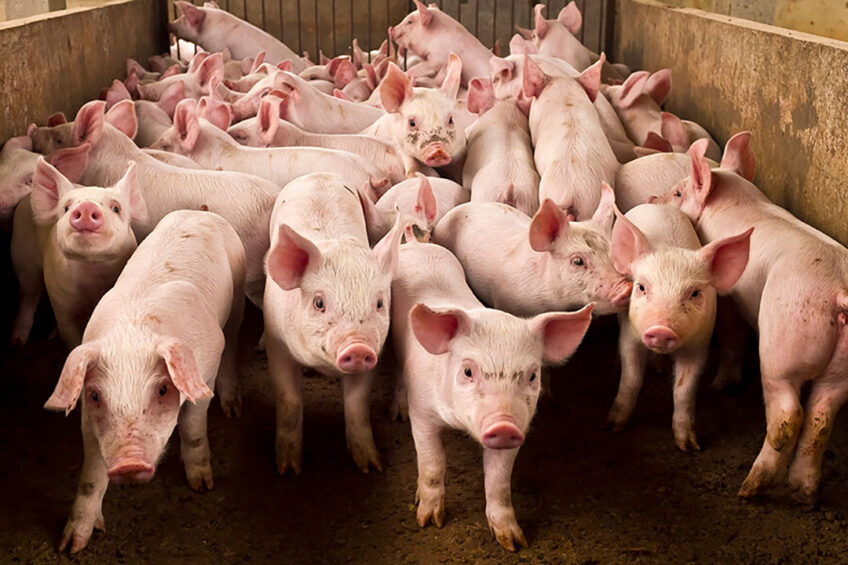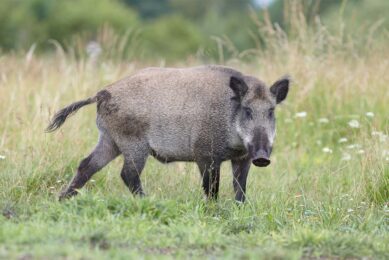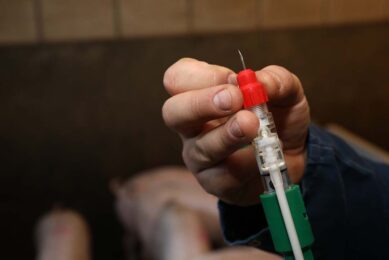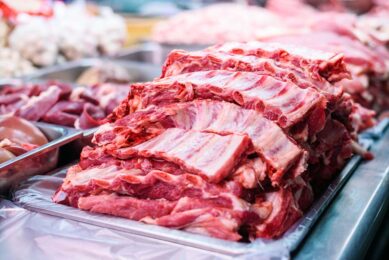ASF Philippines: Integrated farming to complement repopulation programme

Recent efforts against African Swine Fever (ASF) in the Philippines have seen small cooperatives growing vegetables to complement the existing pig repopulation programmes.
Following the advice of the former Department of Agriculture-Special Area for Agricultural Development (DA-SAAD) program Director Myer Mula, cooperatives are receiving pig production projects worth PHP992,000 as a complementary livelihood activity to vegetable production, reports the Philippine News Agency.
Integrated farming
On the vegetable production side, agricultural input such as fruits and vegetable seeds, fertilisers, and pesticides are made available to farmer cooperatives upon their request. The integrated farming initiative helps farmers who do not own land to put their hands into production. This improves their livelihoods and positively contributes to the pig repopulation programme.
“Farmers who do not have their own land may use the available lot to boost the association’s production and earn at the same time,” Nelly Alcantara, chairperson of Mabunga Vegetable Vendors Association (MVVA), said in an interview.
This integrated farming approach utilises rejected vegetables as animal food, reducing production waste and cutting operation costs for swine raising. For the pig complementary side, the projects usually include 160 bags of pig breeder feeds, 10 bags of pig grower feeds, 20 heads of gilts, and one boar. Alcantara also pointed out that the cooperatives will be composting pig manure as organic fertiliser for their vegetable production.
In the Ilocos Sur province, the Philippines Department of Agriculture (DA) has turned over PHP5.5 million cash to the Namnama Candon Multi-purpose Cooperative. Annie Bares, regional executive director of the DA Regional Field Office 1, said the fund allocation is under the Integrated National Swine Production Initiatives for Recovery and Expansion, which “aims to increase local swine inventory of pork supply through the production of head finishers and provide an additional source of food and income to the farmer-members.”
More collaborations
As reported by the country’s Department of Agriculture, the DA itself, the Development Bank of the Philippines (DBP), and the Charoen Pokphand Foods (CPF) Philippines Corporation are preparing a collaborative project that will benefit local livestock.
During a meeting on January 25, 2023, DA Senior Undersecretary Domingo Panganiban instructed DA offices to work closely with the DBP and CPF in formulating an expanded financing programme to assist stakeholders in identified priority areas nationwide. Through the programme, smallholder farmers, cooperatives, associations, and medium- and large-scale enterprises will be able to avail of financing, marketing, and technical assistance to improve their production.
During the meeting, CPF Philippines President Udomsak Aksornphakdee and his team presented the company’s business models for pigs, poultry, and aquaculture, their contract farming projects, and technologies for biosecurity.
In line with the new collaboration, in 2021, the DA, DBP, and the Thailand-based agro-industrial and food conglomerate partnered in launching the Swine Rehabilitation, Repopulation and Recovery Credit (Swine R3) program in support of the government’s efforts to revive the local pig industry.
Increase in supply brings down pork prices
Fruitful results of the repopulation programmes are observed with the increase in supply bringing down pork prices in some regions of the country.
Blenda Almo, office-in-charge of the Laoag City Commercial Complex, said “We are inviting everyone to take advantage of the price drops at the supermarket as these are sold fresh instead of frozen,” she said as she expressed hope the price drop will be sustained to benefit more consumers. Pork prices saw a drop in prices in this city owing to the increased inventory of local supply.
Almo said market goers are seen buying more meat as pork liempo or pork belly saw a PHP30 drop in prices, ending at PHP330 per kilo while pork shoulder dropped to PHP250 per kilo.
 Beheer
Beheer








 WP Admin
WP Admin  Bewerk bericht
Bewerk bericht